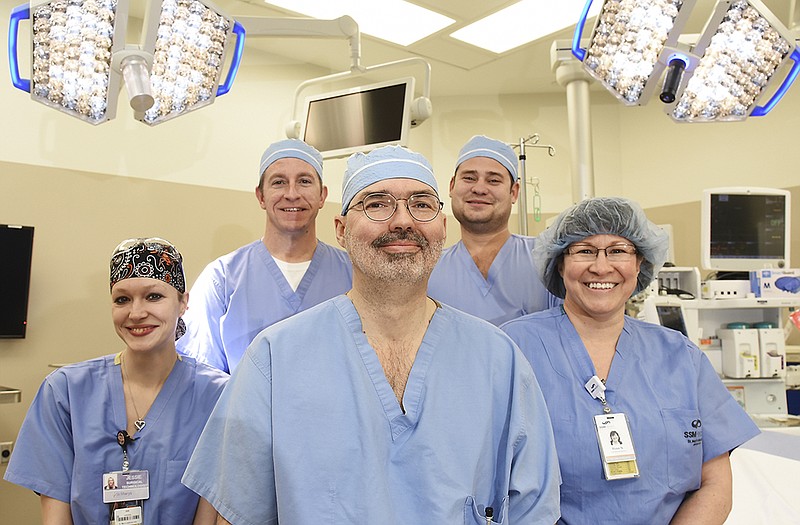For Dr. W. Blake Rodgers, treating people suffering with pain extends beyond the borders of Jefferson City, the country and the northern hemisphere.
Rodgers, an orthopaedic surgeon at St. Mary's Hospital and medical director of its Spine and Pain Management Center, will travel for the second time to the University of Nairobi in Kenya, a country in east Africa, in the upcoming weeks to teach resident physicians and operate with Kenyan spine surgeons.
In September, Rodgers took his first trip to Kenya with three other North American spine surgeons. The medical mission team coordinated its efforts through the NuVasive Spine Foundation, a nonprofit organization of which Rodgers serves on the board of directors. They battled illnesses deteriorating the local people, including Pott's Disease, also known as spinal tuberculosis. The disease, which led to spinal surgeries, is no longer common in North America, Rodgers said, but continues to be a leading source for pain and disability in Sub-Saharan Africa.
Shortly after their arrival, the team met with patients whom the University of Nairobi already evaluated. When meeting with Rodgers and the other surgeons, patients came in with studies performed on them. Some people, he said, sat in line for days to receive no-cost care.
"Day one is basically trying to search your way through the group of those who need you and who would like your help," he said. "After that, all the other days are - early morning until late at night - operating as much as you can and teaching as much as you can."
Those with the worst problems, sometimes life threatening, were expedited through the triage process, Rodgers said. The traumatic and infectious cases were the most severe, operating at Kenyatta National Hospital - a training hub for the university's orthopaedic surgery residency program. Rodgers also treated patients with degenerative and developmental cases, including congenital scoliosis.
"We saw so many heartbreaking things - people with injuries that occurred weeks or months previously who had to make their way, literally, across a country to reach a place where someone could care for them; people paralyzed by injuries who had to come on the back of trucks; and people with things that - in the Global North - are considered absolute and overwhelming emergencies that must traverse an entire nation to find a place where they can rest," Rodgers said.
The NuVasive Spine Foundation is collaborating with the hospital to establish Africa's first spine training program. Rodgers plans to continue teaching Kenyan surgeons and medical students advanced, less invasive techniques that decrease complications, bleeding and infections, and also allow for better recoveries.
"If you take those ideas and those experiences (newer ideas and technologies) to a place where the environment is less conducive to health, then they become even more important," he said. "The techniques that decrease infection rates here are going to be exponentially more powerful in places where the other materials are not as readily available."
Professionally, Rodgers said the "most striking" aspect of his trip was "how much dedicated people can do with so little."
"The health care providers in Kenya are really trying to hold back a tidal wave of disease with their hands alone," he said. "The tools that we have at our disposal instantaneously are available there only with great effort or not at all."
From fellow surgeons to other health care providers to patients, Rodgers came out of the experience with new relationships.
"The people are wonderful: the professional relationships, the collegial, collaborative relationships that you develop with folks who become like family, and the caregiving relationships that you develop with the people who come and give their lives into your hands," Rodgers said. "The people of Kenya are exceptionally grateful, exceptionally gracious and exceptionally patient."
Rodgers said he plans to return to Kenya multiple times in the coming years. Treating the Kenyan people has become a personal mission of his. A factor that motivates Rodgers, he said, is a lesson from his mother: to whom much is given, much will be expected.
"We receive much more than we give, and we learn much more than we teach. We take away a lot more than we bring with us. And, maybe that's the lesson for those of us who live in places that have so much: It is in those times when we step outside our comfort zone that we are most rewarded," Rodgers said.
"It was a great honor, great privilege to work with such dedicated people."

